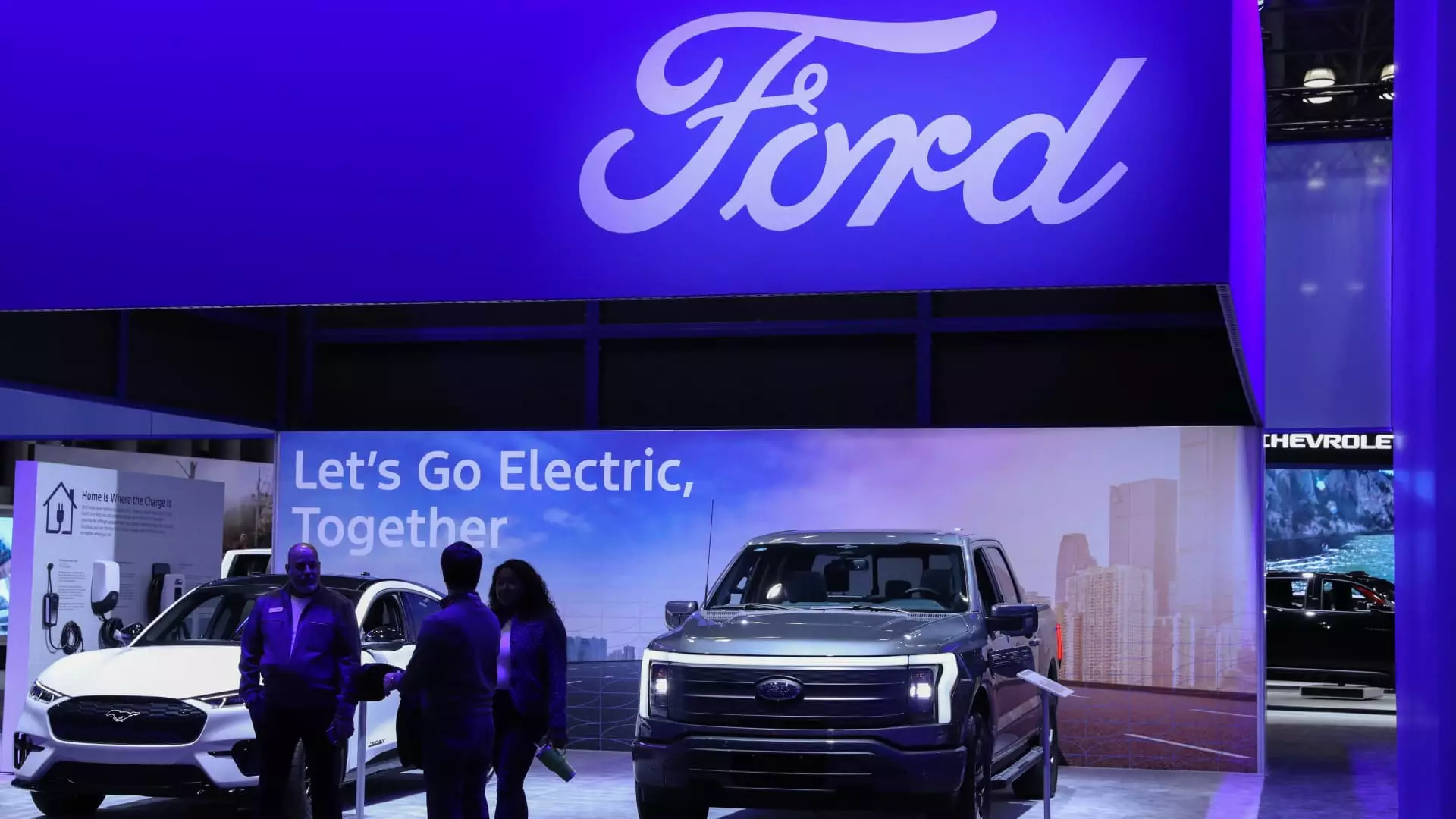Ford Motor recently announced a significant shift in its electric vehicle strategy, opting to delay the production of a next-generation all-electric pickup truck at a new plant in Tennessee. Additionally, plans for a three-row electric SUV have been canceled. Instead, Ford is prioritizing the development of hybrid models and electric commercial vehicles, such as a new electric commercial van set to launch in 2026, followed by two EV pickup trucks in 2027. These changes reflect Ford’s intention to focus on commercial vehicles and trucks, where the company believes it has a competitive advantage.
While these strategic shifts are aimed at delivering a capital-efficient and profitable electric vehicle business, they come with their own set of challenges. Ford anticipates incurring a special noncash charge of approximately $400 million for the write-down of certain product-specific manufacturing assets due to the cancellation of the three-row SUV. Additionally, the changes may result in further expenses and cash expenditures of up to $1.5 billion. These costs will impact the company in the short term but are deemed necessary for the long-term viability of Ford’s electric vehicle division.
Ford CFO John Lawler emphasized the company’s focus on commercial land trucks and SUVs in light of market trends and consumer preferences. The decision to prioritize the development of electric commercial vehicles aligns with Ford’s commitment to meeting the evolving needs of its customers while capitalizing on growth opportunities in the electric vehicle market.
The restructuring of Ford’s electric vehicle portfolio involves a shift in capital expenditure plans, with the company reducing its spending on all-electric vehicles from 40% to 30%. The decision underscores Ford’s strategic realignment towards a more diversified and profitable electric vehicle lineup, catering to different market segments and consumer preferences.
These recent developments reflect Ford’s responsiveness to market dynamics and customer feedback. By being agile and adaptive, Ford aims to position itself as a leading player in the electric vehicle space, offering a compelling range of products that meet the demands of a rapidly evolving market. The decision to delay production and cancel certain models underscores Ford’s commitment to long-term sustainability and profitability in the electric vehicle segment.
As Ford embarks on this new chapter in its electric vehicle journey, the company remains committed to innovation, profitability, and sustainability. The rollout of Ford’s next generation of EVs, starting with a commercial van in 2026, signals a strategic shift towards a more commercially focused electric vehicle lineup. Ford’s continued investment in electric vehicle technology and infrastructure demonstrates its determination to lead the charge towards a more sustainable and electrified future.
Ford’s decision to delay production, cancel certain models, and shift its focus towards commercial electric vehicles represents a strategic evolution in response to changing market dynamics and consumer preferences. By recalibrating its electric vehicle portfolio and investment priorities, Ford aims to strengthen its position in the electric vehicle market and drive sustainable growth in the years to come.


Leave a Reply